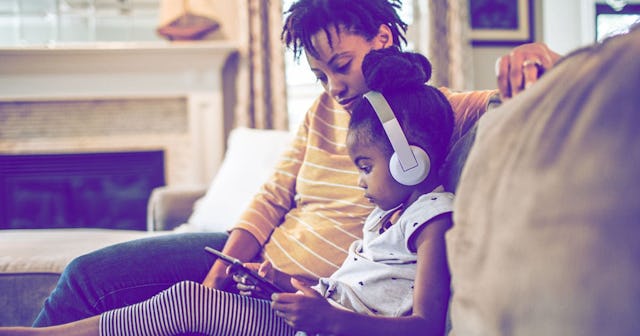I'm A Pediatrician And A 'Good Enough' Parent

As a mother and a pediatrician, I feel a responsibility to my family, my patients and my community to know exactly what lies ahead. But no amount of medical training could have prepared me for this unthinkable life event. Like all of you, I’m taking it day by day. I’ve come up with a few pearls that I’d like to share, about how we can keep ourselves and our families nourished, both physically and emotionally, during these times.
RELATED: 30+ Important Questions To Ask A Pediatrician Before The Baby Arrives
Learn to accept a constant change of plans.
There is nothing I love more than making plans. At all idle moments, my brain is eagerly planning the next activity or adventure. When things were “normal” I especially loved to make plans for my kids. So a few weeks ago, as it became more clear that all these carefully laid plans were to be cancelled, I suffered grief for my children and for myself. I cried for the experiences that they would not have, the idealized childhood I saw as forever tarnished by this period, and for a fear that my children would no longer be able to be “normal kids.” But as quiet family days have become the new normal, I’m amazed at their strength of character and resilience. I asked my son yesterday what he thought about quarantine, and he said “I like it because it keeps people healthy.” I have learned from my children the strength to adapt to life’s constant changes.
Learn to acknowledge your feelings.
I have spent a lot of time learning to experience my feelings over the past month. Some moments are all gratitude, for being well, for spring time, for my family. And then there are the moments of sadness, which can feel all consuming. I feel sadness for all the physical and emotional suffering, for the lives and jobs lost, for our former way of life. But I am learning to acknowledge these emotions as I feel them, and make it a point to discuss them openly with my kids, so they can learn that there is no emotion too strong to feel, and that ups and downs are part of life. That this is the key foundation to resilience building.
Learn to be a “good enough” parent.
zaozaa19/Reshot
Each day my inbox is flooded with Zoom story times, virtual ballet classes, and 25 crafty indoor activities you can do enjoy with your children. I love that we are all trying to create our new normal and keep kids engaged; but sometimes, for me, I feel overwhelmed by the virtual stimulation. It is my feeling that now is our opportunity to be a little more bored and a little more present. In my house, we have stopped trying to keep up with the activities and Pinterest crafts. Yesterday, my son and I spent an hour throwing erasers into a wooden bowl. My daughter spent an hour looking at the patterns on rocks. If you enjoy all the activities, go for it. If you don’t, there is no judgement, just let your kids be kids. And full disclosure, our screen time has gone up 100-fold, and I’m completely okay with that.
Bring back the family meal.
My kids have never eaten more healthfully, as we sit and enjoy family meals as we never did before. They are now engaging in meal preparation and cleanup, as I know they were “supposed” to be doing before, but we never really made the time until now. They are also learning that “pickiness” is no longer an option, because grocery shopping is more complicated and more infrequent than ever. They are learning to eat what everyone is eating.
Create a media protocol for yourself.
Set a designated time each day to update yourself on the news. Each time you “click” on an article, ask yourself what you would like this information to bring you. Click only if you like the answer. This helps you to stay informed, but within limits.
Sometimes in my most optimistic moments, I think perhaps these will be the days our children will look upon fondly. At the very least, they will learn about the humility and humanity of their parents, their loved ones, and the larger collective population.
This article was originally published on